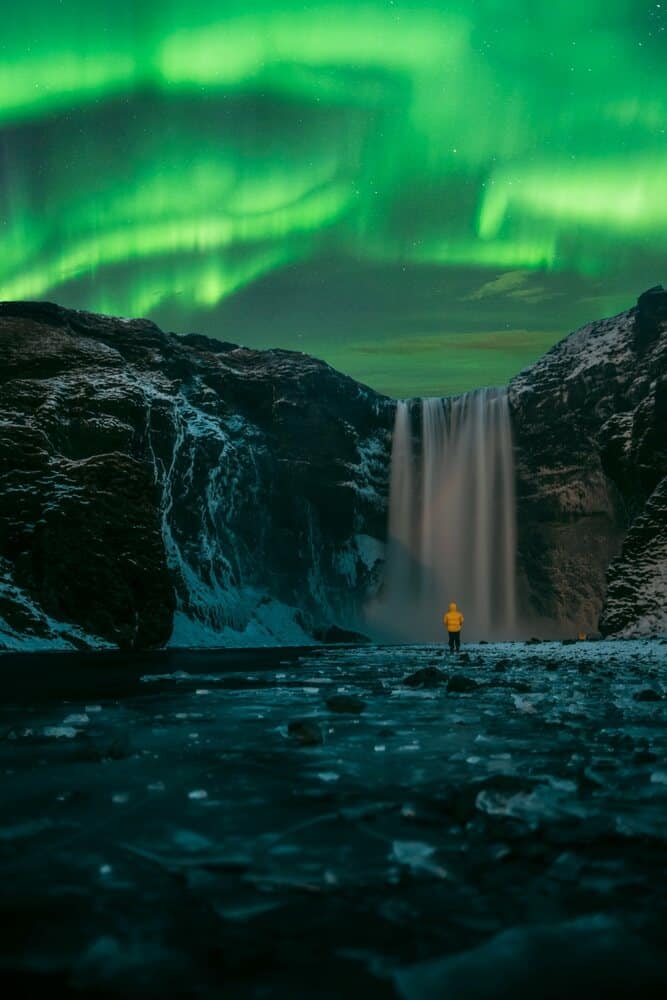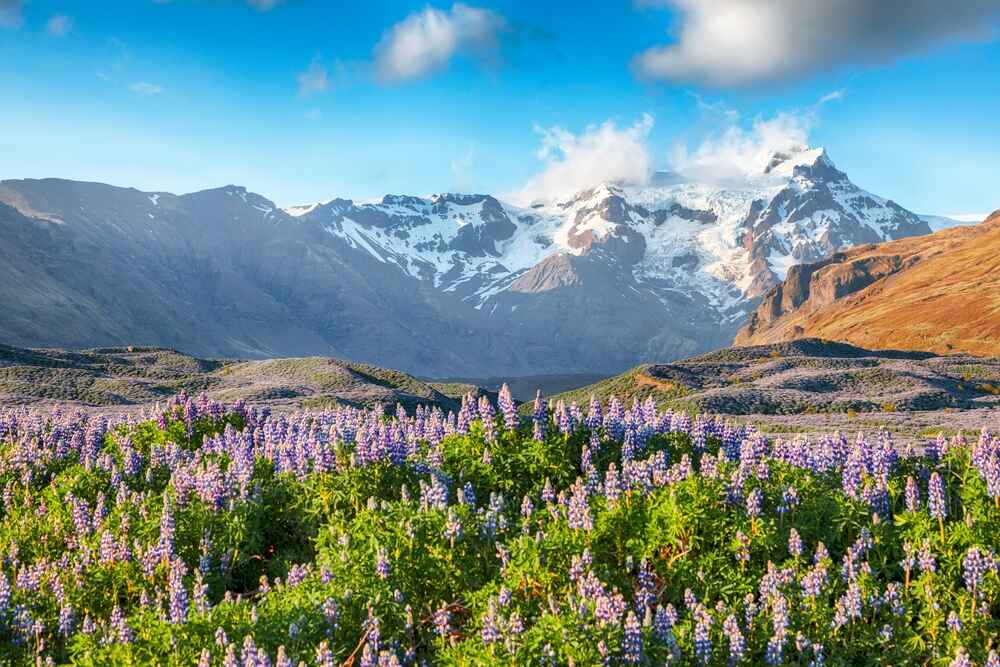Iceland is a dream destination for many, offering stunning landscapes, unique natural attractions, and a sense of adventure. But, for travelers, safety is a key concern when choosing a destination.
Fortunately, Iceland is considered by many as one of the safest countries in the world. You can consider yourself as safe as possible because our country has one of the lowest murder rates in Europe and even the volcanos aren’t a big deal!
In this blog, we’ll explore just how safe Iceland is, why it’s so safe, and provide tips for a secure and enjoyable trip.
How Safe is Iceland?
The answer is very reassuring. Iceland consistently ranks high on the Global Peace Index, highlighting its low crime rate and overall peacefulness. The country’s small population, strong community values, and effective law enforcement contribute to this safety. Whether you are planning to travel to Iceland alone or with family, the safety aspect will enhance your experience.
Low Crime Rate
One of the standout features of Iceland is its incredibly low crime rate. Violent crime is almost nonexistent, and petty crimes like theft are rare. This makes it an ideal destination for solo travelers and families alike. In fact, Statistica reports that only two people were killed on the island in 2021 and the murder rate hovers at 1.5 per year.
Effective Search and Rescue
The Icelandic Association for Search and Rescue (ICE-SAR) is a volunteer organization that plays a crucial role in maintaining safety, especially for those exploring Iceland’s rugged outdoors. Their swift and efficient operations ensure that help is always available, making traveling in Iceland safer.
If driving around Iceland in one of our premium campers we also offer 24-hour support in case of emergencies. We protect each other here in Iceland!
Why is Iceland So Safe?
You might wonder, “why is Iceland so safe?” Several factors contribute to this:
- Small Population: With a population of around 360,000, Iceland’s tight-knit community fosters a sense of responsibility and care among residents.
- Strong Social Welfare System: Iceland’s robust social welfare system reduces social inequalities and crime incentives.
- Education and Awareness: High levels of education and awareness about crime prevention contribute to the low crime rate.
Is It Safe to Travel to Iceland Alone?
For those considering solo travel, especially solo female travelers, Iceland is one of the best choices in the world. The country’s low crime rate and general friendliness of the locals provide a sense of security that is hard to match. Iceland consistently ranks as one of the safest countries on the Global Peace Index, which speaks volumes about its overall safety.
The crime rate in Iceland is incredibly low, making incidents of violent crime almost unheard of. Petty crimes, such as theft, are also rare, which is a significant relief for solo travelers. The strong sense of community and the efficient law enforcement system further enhance the feeling of safety.
Locals in Iceland are known for their hospitality and willingness to help visitors. Whether you need directions, advice on places to visit, or help in an emergency, you can count on the friendly Icelanders. This welcoming attitude makes traveling alone less intimidating and more enjoyable.
For solo female travelers, Iceland offers an added layer of comfort. The respect for women in Icelandic society is high, and incidents of harassment are rare. This makes it an ideal destination for women who want to explore on their own without constantly worrying about their safety.
In addition to the safe environment, Iceland’s natural beauty and numerous attractions, such as the Blue Lagoon, the Golden Circle, and glacier hiking, provide ample opportunities for solo adventurers to explore and enjoy their trip. Whether you are visiting hot springs, horseback riding, or driving around the country, you can do so with peace of mind.

Solo Female Travelers
Solo female travelers will find Iceland particularly accommodating. The respectful culture and low crime environment mean you can explore with confidence. Although caution should always be taken when traveling alone, whether you are hiking the trails, driving the ring road or visiting a natural spring or lagoon, safety in Iceland is rarely a concern.
On the Ground: Speaking English
Another advantage for travelers is that most Icelanders speak English fluently. This makes navigation, asking for help, and social interactions much easier, further enhancing the feeling of safety and comfort. Our Icelandic language is notorious for being hard to grasp due to the phonics and pronunciation (aka it doesn’t look like it sounds) but feel free to offer a friendly Halló to anyone you meet!
Safety Measures for Solo Travellers
For those traveling alone, here are a few additional tips:
- Stay Connected: Keep family or friends informed about your itinerary.
- Local Authorities: Familiarize yourself with local emergency numbers and locations of nearby police stations.
- Public Transportation: Utilize Iceland’s efficient public transport for safe and convenient travel.
- On the Road: If you are road tripping in one of our camper vans check out this Driving Guide to review travel conditions and more or our Campsite and Lagoon Guide for where and when to stop!
Safe Travel Tips for Visiting Iceland
While Iceland is exceptionally safe, it’s always good to follow some basic travel safety tips to ensure a smooth trip.
Guide to Driving in Iceland
- Road Conditions: Iceland’s weather can be unpredictable, and varies throughout the seasons. Always check road conditions and weather forecasts before driving.
- Golden Circle: This popular tourist route is generally safe, but always stay on marked paths and follow local guidelines.
- Safety Equipment: Renting a car with GPS and having a charged mobile phone can be lifesavers.
You can learn how to read Iceland road signs here.
Glacier Hiking and Hot Springs
- Guided Tours: For activities like glacier hiking, always opt for guided tours. Professionals will ensure you have the right equipment and know-how.
- Hot Springs: Natural hot springs can be remote or too hot to bath in. Follow posted guidelines to avoid injuries. Find our must visit on our Campsite and Lagoon Guide

Volcanic Eruptions
Iceland’s unique position on the Mid-Atlantic Ridge makes it a hotspot for volcanic activity. While these eruptions can be a spectacular natural phenomenon, and for the most part not a huge concern to safety, we’d be remiss to exclude volcanos from this guide,
In July 2024, the eruption site north of Grindavík remains a key area of concern. Currently, there is no activity in the crater, but the area is still closed to the public, including Grindavík village. It is crucial to respect these closures for your safety and the safety of others. Venturing into closed areas can be dangerous and may lead to serious accidents or impede rescue efforts.
Another notable site is Fagradalsfjall, also known as Geldingadalir. As of July 2024, visitors are advised to stay on marked trails to protect the environment and ensure their security.
Proper preparation is essential: wear sturdy hiking shoes and warm clothing, bring windproof and waterproof outer layers, carry sufficient water and snacks, and ensure your phone is fully charged.
Importantly, do not attempt to walk from this area to the eruption site north of Grindavík, as there are no safe trails and the area is hazardous.
For up-to-date information on eruption sites, visiting SafeTravel.is is recommended. They provide the latest updates and safety guidelines for travelers.
Enjoying Iceland’s Natural Wonders Safely
Iceland offers a plethora of natural attractions that are both breathtaking and safe to visit.
Black Sand Beach
Reynisfjara, the famous black sand beach, is stunning but can have strong waves. Always keep a safe distance from the water and follow local safety advice.
Blue Lagoon and Other Hot Springs
The Blue Lagoon is a must-visit, and it’s perfectly safe. The water is monitored for safety and hygiene, ensuring a relaxing experience.
Horseback Riding
Exploring Iceland on horseback is a unique experience. Always use reputable tour operators who prioritize safety.
The Bottom Line
Iceland is not only one of the safest countries in the world but also one of the most beautiful. With its low crime rate, effective search and rescue teams, and friendly locals, you can enjoy your trip without worrying about safety.
From the Golden Circle to the Blue Lagoon, and from glacier hiking to exploring the black sand beaches, Iceland offers endless opportunities for safe and memorable adventures.
So, pack your bags and get ready to explore the incredible Iceland, knowing you are in one of the safest places on earth.
By understanding the safety aspects and taking a few precautions, you can ensure a smooth and enjoyable trip to this stunning country. Happy travels!